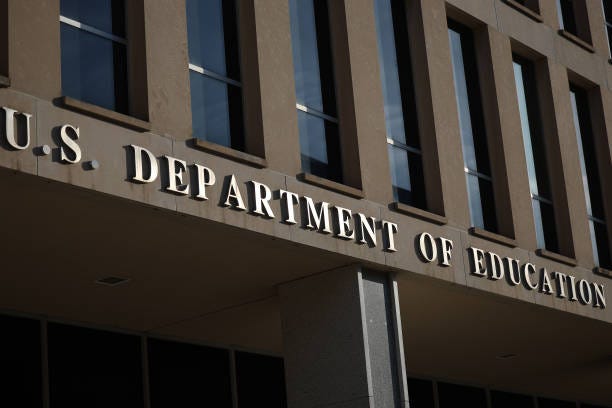
(Listen 🔊: Full segment with Newell and Dr. Hogan)
It’s official, Trump plans to sign an executive order to close the Department of Education (DOE).
Secretary of Education Linda McManus said that upon closure, only legally required duties would be carried out. Thus far it seems the order will shut down six regional offices: San Francisco, Dallas, Chicago, Cleveland, Boston, New York, and Philadelphia. Four will remain open, Seattle, Denver, Kansas City, and Washington, D.C.
There’s a lot of anxiety, fear, and speculation around what this means.
To broaden the perspective, I had on the department chair of political science at LSU. Dr. Robert Hogan to talk about the implications of closing the DOE.
Newell: What are your top-level thoughts on dismantling the federal department?
Dr. Hogan: It’s unusual. And I think it’s a reflection of Trump’s approach to governing. It’s very different than what we’ve been accustomed to for a very long time, perhaps in the history of the republic.
Normally, we think of presidents as gathering a coalition of support among his party and maybe the other party and letting the public in on what he's doing. Then they’ll say hey we need to pursue this policy change and here's the way we're going to go about it. Trump’s approach with the DOE…is rather jarring and (Trump) doesn't seem to necessarily have a plan for what they're doing. The idea, I think, is to sort of pick up the pieces later on and sort of see what's left.
Maybe Congress will come in and straighten things out…It’s to be seen how effective it will be, whether or not Congress will eventually step in and say, wait a second, we are a co-equal branch of government in the United States here, and we want to play a role along with you to make these sort of changes, given a lot of these sorts of changes are constitutionally questionable.
Newell: There are already two layers of oversight for public education state and local, in addition to the federal department. And as things stand, we already know it’s a mess. There’s immense red tape and delays for anything to get done because decisions have to pass through so many bureaucratic hoops. Would eliminating the federal branch of the DOE achieve its goal of efficiency by reducing redundancy, duplicate works, and delays?
Dr. Hogan: I think that's part of the argument against what Trump is doing right now, that they're not looking at efficiencies in a deliberate way. They're going in with a metaphorical chainsaw and indiscriminately cutting and doing away with large offices of people…
I think many would make the argument, especially the parents of children with disabled children who aren’t having their needs met, they might say we need the national government to get involved because the states are often very constrained. Local governments are certainly constrained in terms of what they can do financially.
I think that the other argument here, the bigger argument, is that you need to have a national standard. Take disabled students, for example, students with autism or mobility issues. Shouldn’t they have equal access whether they live in the state and a locality that has lots of money or little money. The national government says that there’s an oversight rule for them many students have benefited greatly because the national government was willing to step in with resources.
Often times when you're fighting the local school board, you have no one to depend on but yourself, and a lot of people don't have the money to hire an attorney to make the case for them. So even if there is a national standard, you also need some national enforcement mechanisms.
Newell: Why couldn’t the responsibility be given solely to states to decide educational standards, then leave it up between the state and the local governing bodies to take care of things on a granular level, instead of involving a federal bureaucracy getting involved?
Dr. Hogan: Some issues are so important, one could argue, that it's not so bad if you have overlap…. But this is a grand departure from the normal policymaking that we're accustomed to. It’s tearing hell out by its roots in some way. And you've got to think what are the consequences of a lot of these things.
One of the big things that's so shocking about the DOE cuts is they want to do away with people who collect data on information about student achievement. To me, that's an extraordinarily short-sighted thing to do. It seems that one of the things you most want to do is understand if students are achieving and learning.
We have these very long longitudinal studies that look at student achievement. We create these national report cards that give people more information about their choices about what kind of education their children are getting. It appears from the reports coming out that that’s one of the areas to be most devastated by these cuts.


